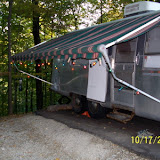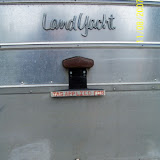In the spring of 1975, I graduated from Athens High School, Athens, AL. I think our class must be due for a reunion this year, a multiple of 5 -- or do they go to 10 year increments after thirty years? Anyway, wow, 35 years ago!
I have five or six classmates on Facebook, some of whom I knew since elementary school. The benefit/burden of living in a small town is that everyone knows everyone -- sort of.
It's not so small anymore, and, even back then, we always seemed to have newcomers.
Athens would not like to see itself as a bedroom community to any other city, but, in my memory, that was one of the interesting things about the town. The Huntsville industries brought a lot of "new kids" to town, children of people who worked in the science industries. In my mind, the most notable industry was the Space and Rocket industry, led by Werner von Braun, who led the development of the Saturn rocket, that made possible JFK's vision to land earthlings on the moon. Our 10-year-old is fixin' to go to Space Camp with her school this month, at the Space and Rocket Center.
Huntsville was the place to go as a teenager, if you wanted a nice date to a movie and a restaurant (The Fog Cutter, Red Lobster, -- you know, the fancy places). Athens had no movie theater at the time, at least not with new releases. I did work in the then-new Athens Cinema in my senior year, I opened the building, turned on the big projector, and started the popcorn machine -- all processes that took a long time.
I have been thinking about Athens High School lately because of the recent acquaintance with "the other McWilliamses" of Limestone County. How much I do not know of my own heritage ... Talking with Mikal Saahir and telling others about the story of our meeting (see earlier posts) have peeled back layers of memory and associations -- and the lack of them.
In 1975, our class graduated with a history of (not sure about this) five years of desegregation. I recall that we attended the old Athens High School when the Middle School was created around the same time, and I was in the 8th grade. Those who had attended 6th grade at Athens Elementary School spent 7th grade in another school for one year, while arrangements were made for the creation of the Middle School. [Memory is notoriously unreliable without documentation, so I'm not really sure about this chronology.]
By the time 8th grade opened up at the Middle School, desegregation had happened. I remember being led into the hallway on the first day of school, each class with its white students, lined up to greet our new black classmates. The air was charged with anxiety on both sides of the hall.
How did that desegregation work that year, from a system perspective? Only later in life did I begin to think about what my new classmates lost in desegregation. Trinity School was a beloved place for a lot of people, yet it was closed down and left to deteriorate. I recall driving through "the black section of town" and seeing the weeds and vines crawling up the walls and roof. Or do I? I think I remember that.
Instead of integrating both Trinity and Athens High, Trinity was closed, and, eventually, a new high school was built on the north side of town. This new school was located on Highway 31, not far south of the junction with I-65.
As I moved on through school, in those high school years, there were incidents of violence, especially at football games, it seems to me. I was in the band, and as far as I knew, or was concerned then, the band was a place of discipline and order. Mr. Bacon and Mr. Havely ran a tight ship, and music kept us all focused. Band was my joy in high school, along with my church youth group, the UMYF at the First United Methodist Church, and, of course, my horses.
For reasons I came to understand much later in my life, high school was not a happy time for me. I felt that I did not fit in. I was a tomboy; I was not particularly popular; I didn't date much, but had a series of boyfriends. When I was a senior, I was rushed into the sorority that I thought would make my social life complete. But, I quit because it interfered too much with my horse time. [Kids are so cruel to each other. Rumors and lies drifted back to me much later, but I was too far gone to care.] Life at home was fractious. Interracial dis-harmony, Vietnam, Watergate all created a -- here comes the cliché: turbulent time in which to be a teenager. I could hardly wait to get away and go to college.
When I did go away, I kept on going. Now, I'm here in Indianapolis, with my partner, a woman, her 10 year old daughter, our three dogs, and one cat, and surrounded by inlaws/outlaws I dearly love -- and, here, it's mutual and I feel so very normal. My family of origin, however, is painfully broken. My dear dad, full of bitterness and grief, still lives in Athens. My remaining brother is in Nashville, frequently homeless (see earlier poem). Robert's wife and kids live in Florida, and his teenage daughter is doing her best to find him in herself and her friends.
I had to move to Indianapolis to meet up with some wonderful people from Limestone County, with whom I share a history that is older than Athens High School. They mention names to me of their relatives, classmates and schoolmates with whom I shared nothing in common back then. I wish I could hear some stories of both the Trinity and Athens Middle and High kids who gained something and lost something back then.




